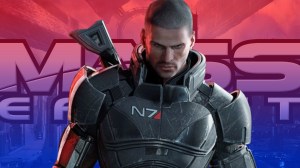Recently, I made a true gamer move: I looked at my growing stack of unplayed games and decided to dive into something familiar rather than something new. Specifically, I booted up the Mass Effect Legendary Edition so I could re-experience this amazing trilogy of games from beginning to end. And while I would have thought it impossible to love this series any more, I found myself more passionate about Commander Shepard and her world (yes, I’m a FemShep guy) than ever before.
Videos by ComicBook.com
When it comes to individual titles, there are a few role-playing games I enjoy more, chief among them being Chrono Trigger. But when it comes to game franchises, though, you can forget rivals like Final Fantasy; Mass Effect is, simply put, the best modern RPG series of all time. Don’t believe it? Well, don’t go all renegade on me: keep reading to learn why Mass Effect remains the “paragon” of role-playing games!
Delightfully Weird Characters
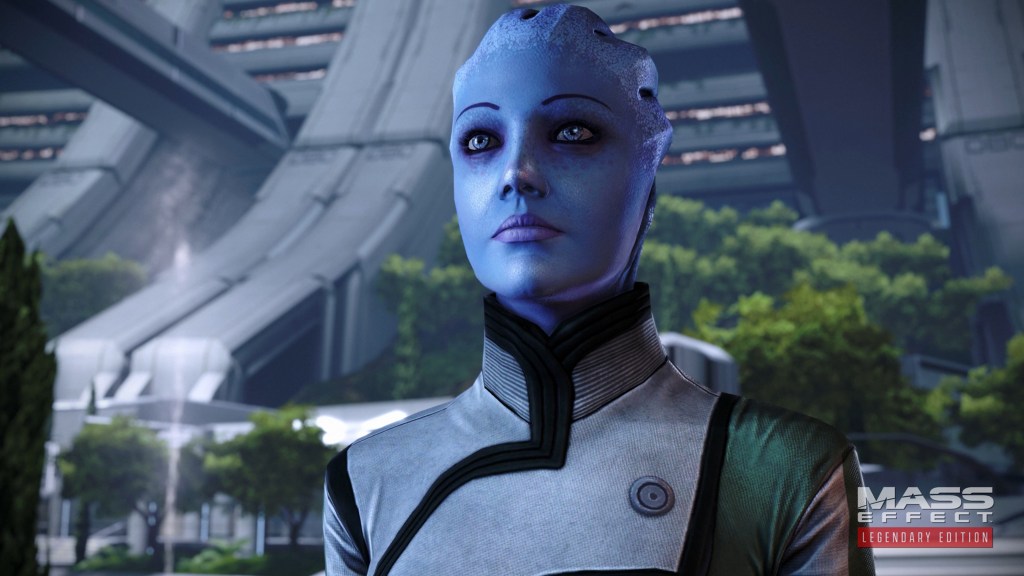
It’s no secret that an RPG is only as good as its characters. What I love about Mass Effect is that its characters aren’t simply “good,” as in being well-written. They are actually delightfully weird in a way that helps them transcend standard character archetypes. Mordin Solus isn’t just a brilliant doctor, for example, he’s also someone as likely to sing a jaunty tune or execute someone in cold blood rather than whip up a genius invention.
Garrus is more than a charismatic badass: he’s a loose cannon who channels his guilt and frustration into his dream of becoming the galaxy’s most deadly vigilante. And Joker, the cranky pilot voiced by Seth Green, presents as just a sarcastic class clown, only to reveal a surprisingly tragic background story and rich inner life. Heck, even Ashley, the fan-dubbed “space racist”, has some deep lore that explains her problematic view of all things alien.
Whenever I replay Mass Effect, I am astonished by how these characters manage to surprise me. Like real people, they are full of hidden depths and strange quirks, and managing my virtual relationships with all of them meant learning how each one ticked. All of that adds to the game’s immersion, making me feel less like a generic space hero and more like a captain who must really get to know her crew if any of us is to make it out of the next scrape alive.
Mystery Storytelling Done Right
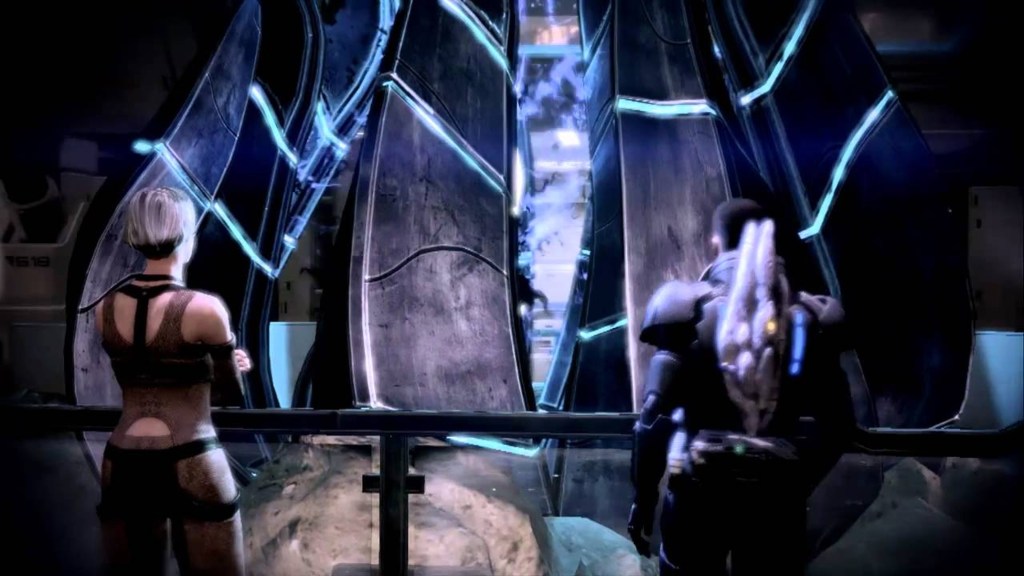
What does Mass Effect have in common with Lost? Simple: they are both built around mystery storytelling. However, Lost (and a great many of the shows and movies that tried to bite its style) arguably dropped the ball because the mystery build-up was far more exciting than the answer to the mystery. Mass Effect, however, manages to give us both exciting mystery-building as well as a satisfying payoff.
For example, the first game is exciting early on as you try to decipher the meaning of Shepard’s vision and what it means for both her and the galaxy. Eventually (spoilers, sweetie!), we learn that this is a vision of galactic genocide at the hands of the Reapers, AI baddies who won’t rest until they extinguish all organic life yet again. The second game does a similarly excellent job building up the mystery of the Collectors, leading to the grotesque revelation of a Reaper in the form of a human.
Excellent pacing and suspense meet jaw-dropping payoffs. Be honest, genre fans, isn’t that way better than some silly smoke monster?
Killer World Building
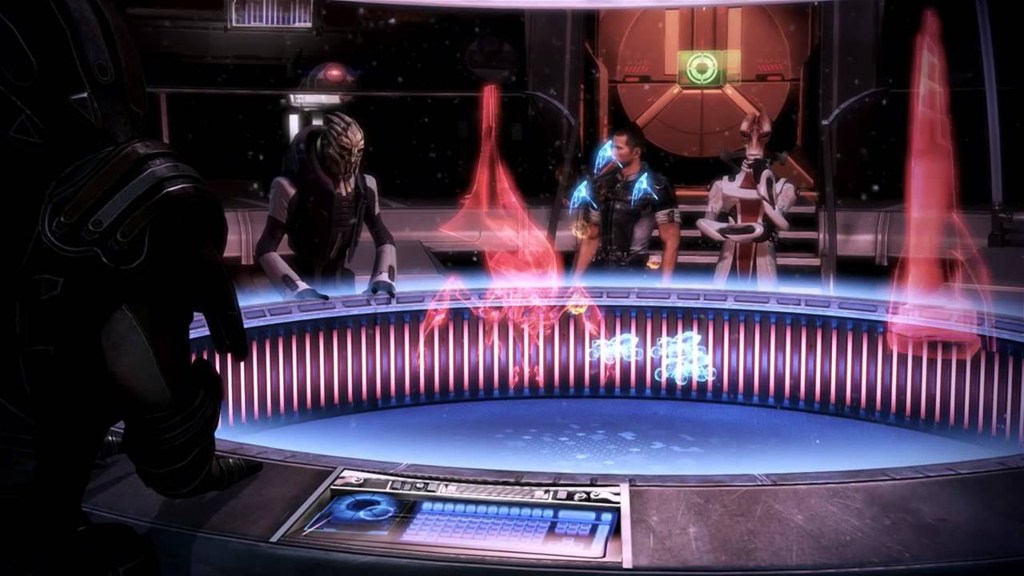
In replaying the Mass Effect games, I was struck by how immersive this fictional world felt. The reason for that is simple: the franchise provided killer world-building from beginning to end. The various alien species, for example, weren’t just window-dressing for a mostly-human adventure. Instead, everyone from the Krogan to the Asari seems fully fleshed out, with fascinating histories and cultures of their very own.
And the more you explore this universe and speak to its inhabitants, the more you can empathize with pretty much everyone. After a few scrapes with the Krogan, you can understand why the galaxy felt the need to halt their relentless expansion. And after a few conversations with Wrex, you’ll understand how amoral it was to infect an entire species with a crippling genophage. There is no “right” answer, and that’s the point: this isn’t the utopian world of Star Trek, and players must make decisions just as hard (and often harder) as any of the supporting characters.
Shades of grey, complex alien cultures, and meaty moral choices? Welcome to Mass Effect, baby!
Combat Is Fun and Visceral
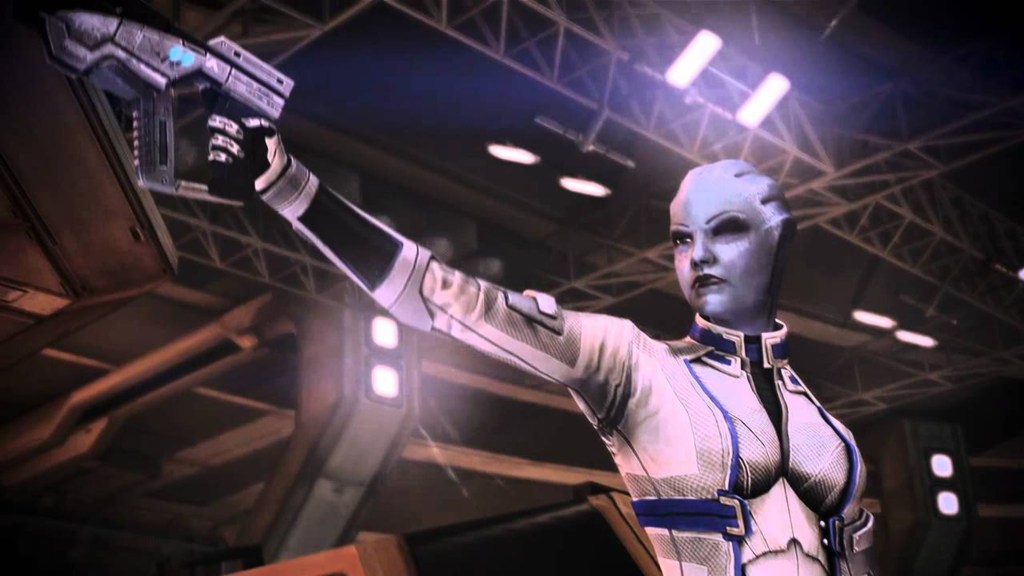
In my replay of the Mass Effect series, something funny happened: I found myself enjoying the combat sequences almost as much as the dialogue-heavy role-playing sequences. Normally, I find combat pretty perfunctory, which is why I don’t hesitate to fast-forward through the endless random encounters in the Final Fantasy remakes. But Mass Effect had me hooked because each fight felt fun and visceral in a way that most modern RPGs don’t.
The biotic abilities of Shepard and her allies are a big part of that because they provide endless tactical possibilities depending on who (or what) you’re fighting. And even if you just stick with a biotic-free Soldier build (like me), the gunplay is slick and satisfying, and it rewards tweaking your weapons on the fly to deal with different foes (like choosing acidic or incendiary weapons to keep those Krogans from regenerating).
Compared to this, the turn-based combat of so many other RPGs just feels like a snoozefest! And you may find yourself longing for Mass Effect’s more visceral combat the next time an RPG’s climactic final fight feels more like playing around on your phone than fighting for your life.
The Highest Stakes
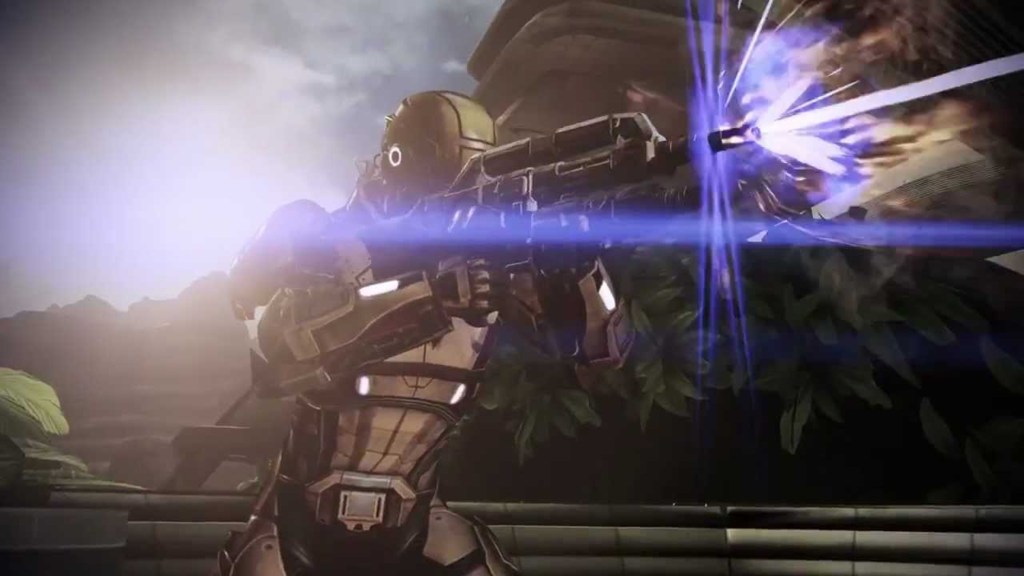
Part of what makes Mass Effect so engrossing is that the stakes are wildly high. You aren’t just fighting to save the world, like in retro favorites like Chrono Trigger or Final Fantasy VII. Instead, you are fighting to save all organic life in the galaxy. And you’re fighting against villains who already have countless reps in committing genocide on a galactic scale.
For me, these high stakes added a meaty weightiness to pretty much everything I did. Sacrificing a beloved character? Sure, it sucks, but I couldn’t weigh a single life against the entire galaxy. Making morally murky decisions and slowly becoming a hated renegade? Hey, those are small stakes compared to saving literally every single person. High stakes make for high drama, helping cement Mass Effect as the best modern RPG game series.
Rewarding Character Arcs
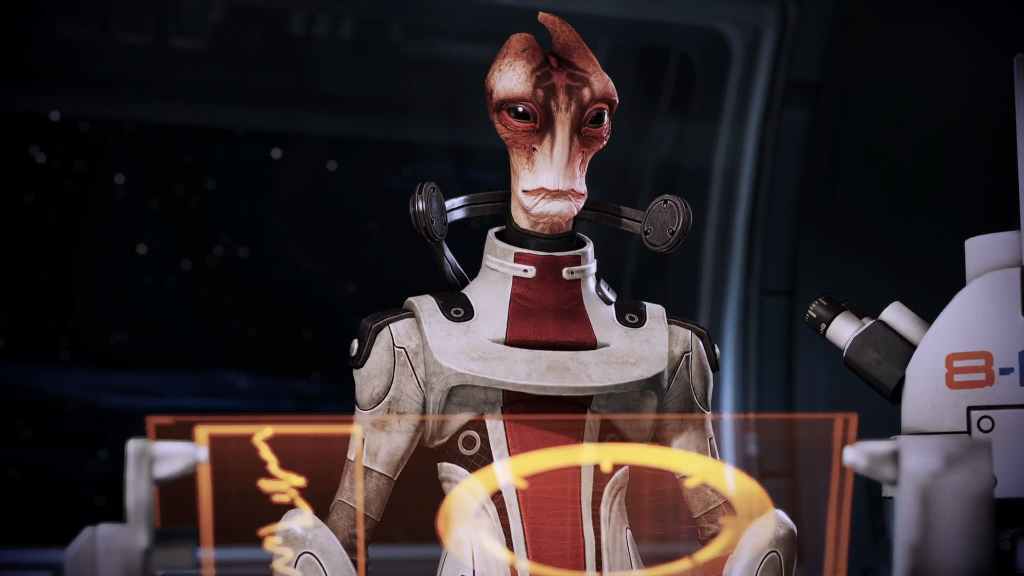
Sometimes, even beloved RPGs can be frustrating because most of their characters are the same from beginning to end. Most gamers enjoy dynamic characters, so it can be annoying when leads like Cloud Strife or Squall Leonheart are still mostly monosyllabic meatheads by the time the credits roll. Compared to other franchises, Mass Effect has some of the most rewarding character arcs in gaming history.
Wrex goes from being a lone mercenary to the possible savior of his race. Mordin (assuming you keep him alive and make the right choices) goes from dooming the Krogans with a genophage to sacrificing himself to cure them. Heck, even Joker goes from hating AI on principle to making moony eyes at his robot girlfriend.
In Mass Effect, just about everyone gets to grow and change over time. And this kind of dynamic storytelling makes it rewarding to bring their stories to life.
Every Decision Matters
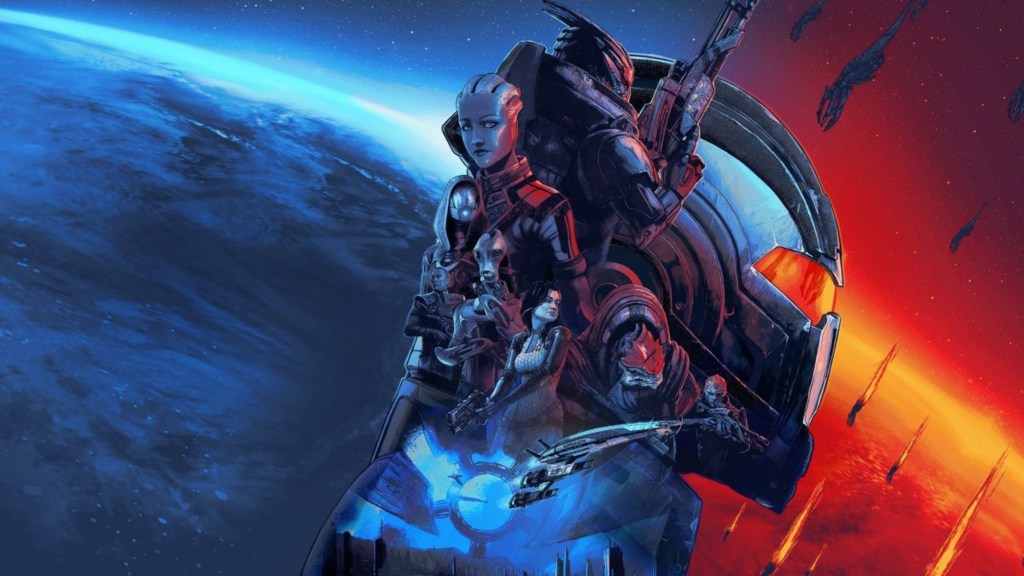
BioWare arguably deserves the most credit for making crucial decisions a key element of role-playing games. Their famous Knights of the Old Republic duology, for example, gives players countless opportunities to be a do-gooder Light Side user who solves problems with peace and diplomacy or be a naughty Dark Side user who solves problems with Force chokes and lightsabers. Mass Effect took this idea to a whole new level, giving players more consequential choices that impacted events of later games.
For example, you can decide whether to save the last Rachni Queen in the first game, possibly putting the galaxy at risk; should you do so, the Rachni show up in Mass Effect 3 at a crucial moment. And making the right choices determines how many of your team you lose in the Mass Effect 2 suicide mission, dramatically affecting the character and story options of the third game.
This is subjective, of course, but even relatively minor choices resonate in a big way. On my last playthrough of the trilogy, I got so distracted putting out galactic fires in the third game that I could not save the life of Kelly Chambers, my yeoman (and not-so-secret sidepiece) from Mass Effect 2. As I mourned the loss of my fictional fling, I realized this was the magic of the franchise: every choice matters, and learning to live with my hard (and sometimes poor) choices let me experience how painful being a Commander can truly be.

